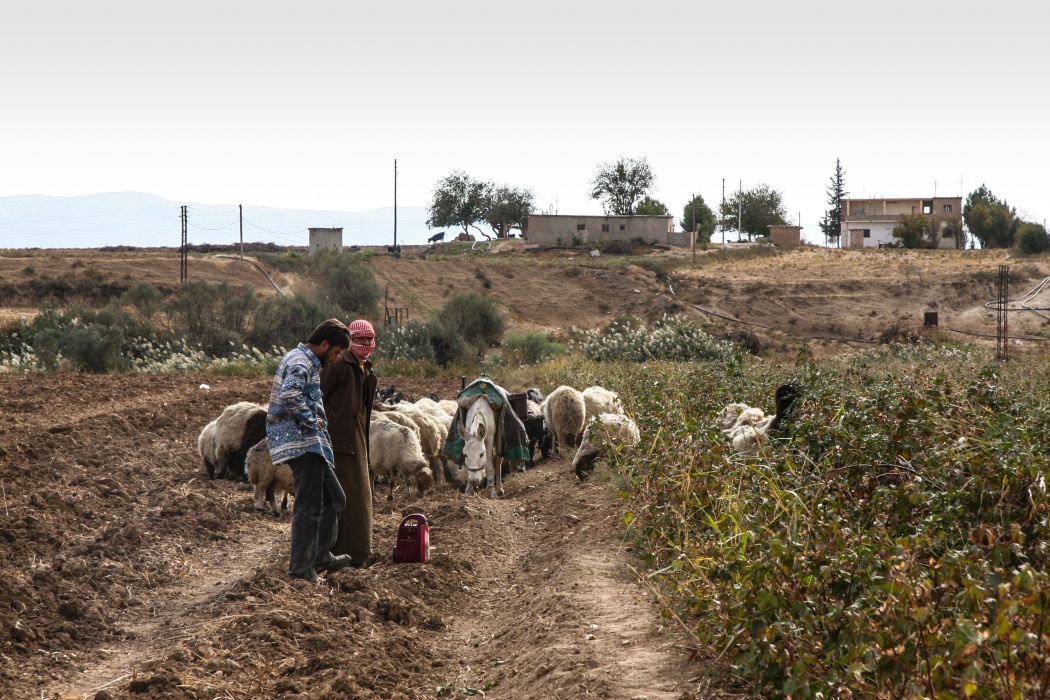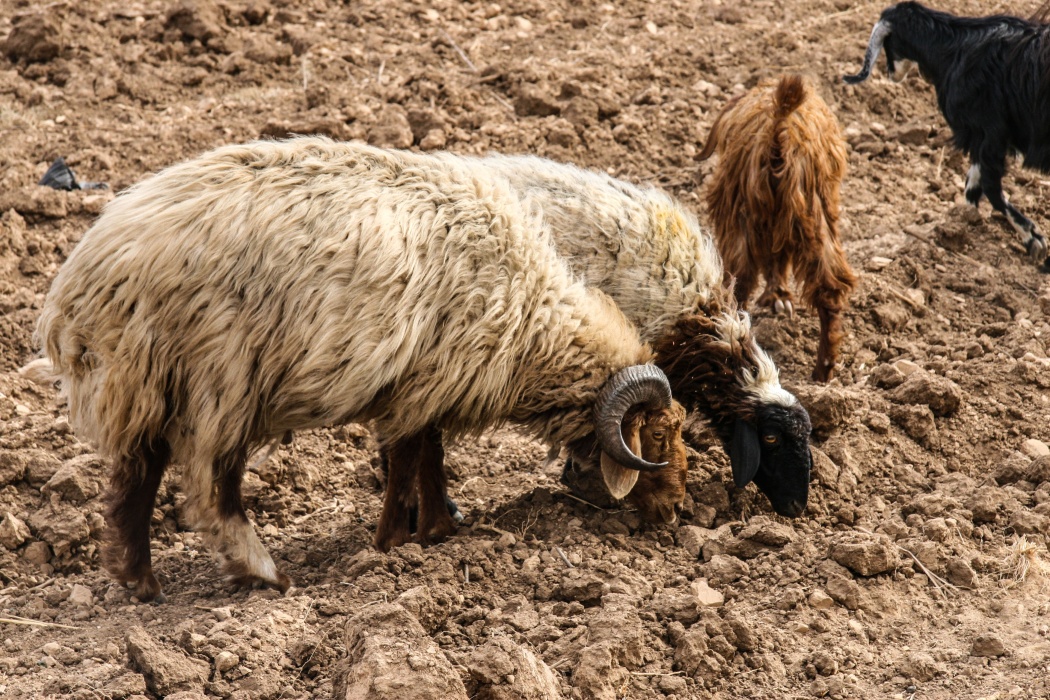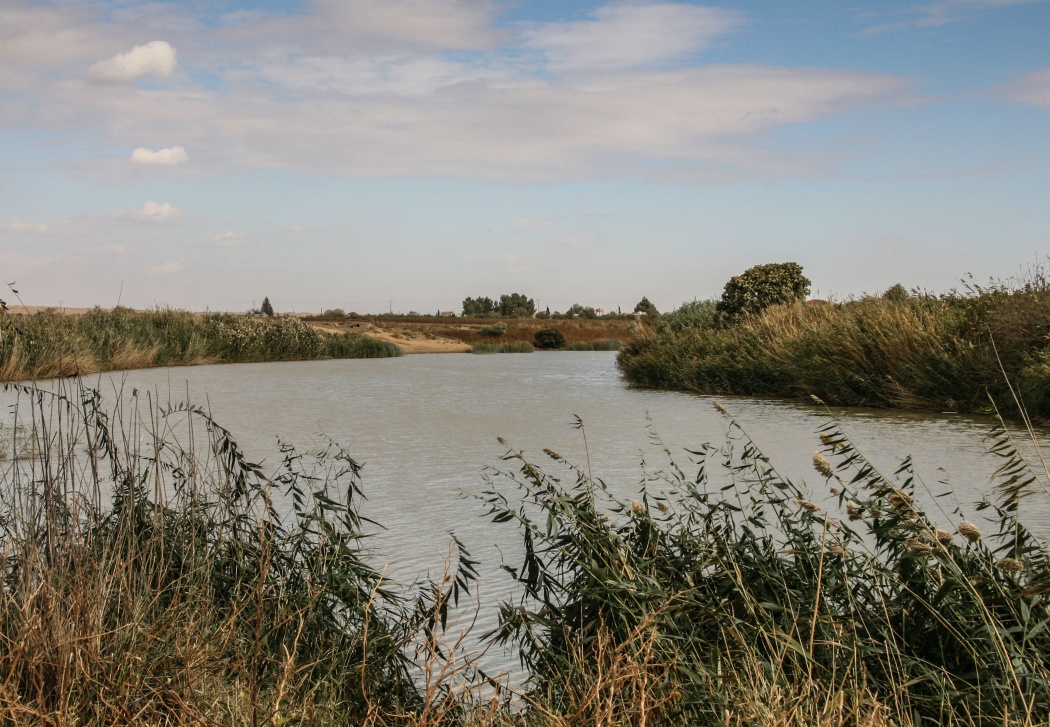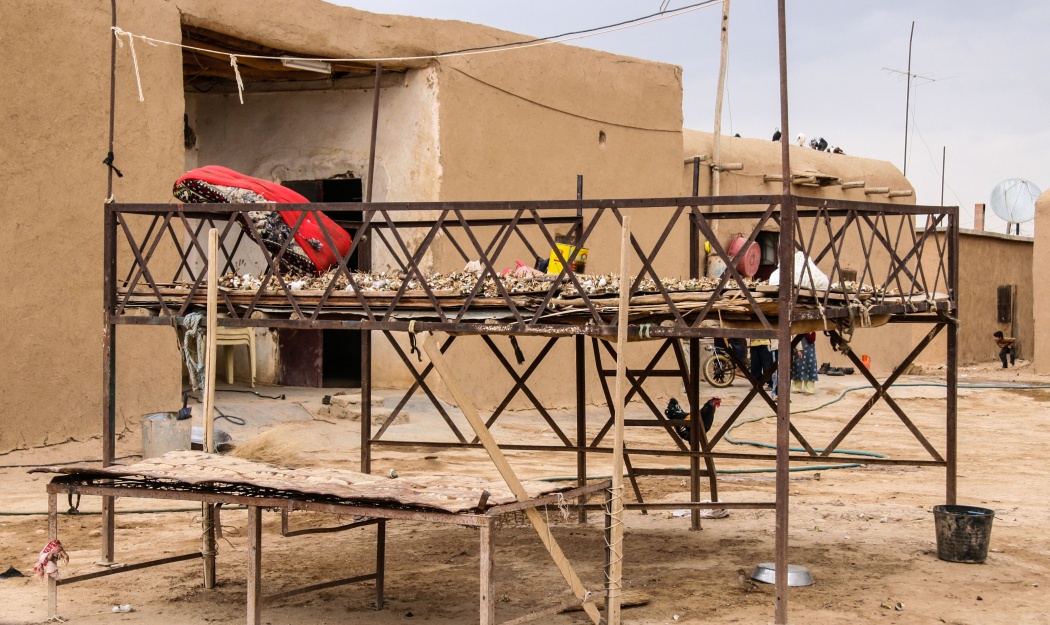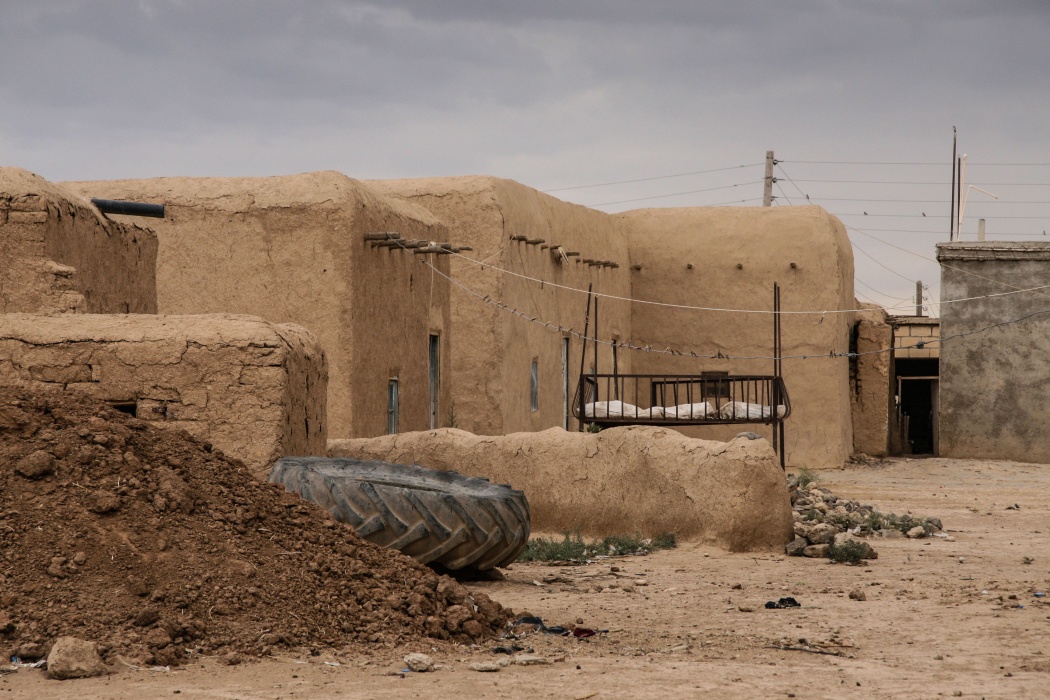«
<
>

forgotten Syria
In recent decades, the idea of the existence of a link between climate change (exacerbated by unsustainable exploitation of natural resources, often to the detriment of the most vulnerable communities) and conflicts has been consolidated. This link has also been applied to the Syrian case: this is the thesis supported by Marwa Daoudy in his book "The origin of the Syrian Conflict: climate change and human security" (Cambridge University Press, March 2020). According to this logic, climate change would be at the origin of the drought that hit Syria hard between 2006 and 2010, in particular the eastern part of the country: the drought would have caused the failure of the agricultural sector, bringing poverty and discontent, culminating in the revolt.
Agriculture (in particular wheat and cotton), together with livestock, have always been the main livelihood activities in the eastern region of Syria (Hassakeh, Qamishleh, Ras el-'Ain); this border area was in the past extremely rich and fertile, with a great abundance of water resources such as numerous springs and the great Kabur River, a tributary of the Euphrates.
When I visited this region, in November 2007, the situation had already deteriorated greatly from an environmental and economic point of view: the landscape appeared deserted and desolate, few cultivated fields, the springs almost completely dry and the Kabur river had now become little more than a torrent.
The gradual impoverishment of water resources and the unsustainable exploitation of land have made the land mostly arid and uncultivable over time. The soil, impoverished, has become, over the years, muddy and saline: landslides and subsidence have caused huge holes, visible both in the fields and in the city streets.
Some phenomena - such as the decrease in rainfall - are common globally: but others - the depletion of water tables, the exploitation of land with unsuitable crops or intensive farming practices, are closely linked to the local context.
The eastern region, mainly inhabited by Kurdish communities - always discriminated against by the government - has been heavily exploited for agricultural production over the decades and then abandoned to itself when the destructive results of this exploitation have made its lands unproductive. Speaking with farmers in the area, in 2007 there was widespread discontent over the lack of attention from the government for the problems that had been affecting the population of this region for years.
Due to the failure of the agricultural sector (in some areas production has decreased by 80%) many people have been forced to emigrate, mainly to the United States and Australia.
These images describe a situation of extreme and widespread poverty: the Kabur River, once a source of life and wealth, is now reduced to a miserable stream; of the springs of sulphurous water, which once also served as a place of recreation for the locals, only deep holes remain in the ground where the water is only a pale memory. Of the thriving farms that once were flourishing in the region, nothing remains but abandoned and dilapidated buildings, surrounded by wild land and the remains of what must have been irrigation systems. Deep holes open up under the incredulous eyes of the people.
This is what remains of the Fertile Crescent in Syria.
Agriculture (in particular wheat and cotton), together with livestock, have always been the main livelihood activities in the eastern region of Syria (Hassakeh, Qamishleh, Ras el-'Ain); this border area was in the past extremely rich and fertile, with a great abundance of water resources such as numerous springs and the great Kabur River, a tributary of the Euphrates.
When I visited this region, in November 2007, the situation had already deteriorated greatly from an environmental and economic point of view: the landscape appeared deserted and desolate, few cultivated fields, the springs almost completely dry and the Kabur river had now become little more than a torrent.
The gradual impoverishment of water resources and the unsustainable exploitation of land have made the land mostly arid and uncultivable over time. The soil, impoverished, has become, over the years, muddy and saline: landslides and subsidence have caused huge holes, visible both in the fields and in the city streets.
Some phenomena - such as the decrease in rainfall - are common globally: but others - the depletion of water tables, the exploitation of land with unsuitable crops or intensive farming practices, are closely linked to the local context.
The eastern region, mainly inhabited by Kurdish communities - always discriminated against by the government - has been heavily exploited for agricultural production over the decades and then abandoned to itself when the destructive results of this exploitation have made its lands unproductive. Speaking with farmers in the area, in 2007 there was widespread discontent over the lack of attention from the government for the problems that had been affecting the population of this region for years.
Due to the failure of the agricultural sector (in some areas production has decreased by 80%) many people have been forced to emigrate, mainly to the United States and Australia.
These images describe a situation of extreme and widespread poverty: the Kabur River, once a source of life and wealth, is now reduced to a miserable stream; of the springs of sulphurous water, which once also served as a place of recreation for the locals, only deep holes remain in the ground where the water is only a pale memory. Of the thriving farms that once were flourishing in the region, nothing remains but abandoned and dilapidated buildings, surrounded by wild land and the remains of what must have been irrigation systems. Deep holes open up under the incredulous eyes of the people.
This is what remains of the Fertile Crescent in Syria.

